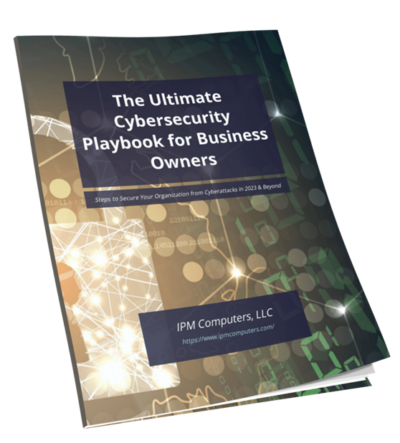Thanksgiving isn’t just about turkey and pumpkin pie—it’s also a prime time for cybercriminals to swoop in while your business is buzzing with holiday chaos. When everyone’s distracted and online activity spikes, cyber threats multiply, putting your business at serious risk.
Cybersecurity insurance for businesses acts like a sturdy shield, protecting your finances from getting carved up by costly cyberattacks. Think of it as a safety net that catches you when hackers try to slice through your defenses during this hectic season.
This article dives into why Thanksgiving cybersecurity should be on every business owner’s radar. We’ll explore how cybersecurity insurance for your business can be a game-changer, plus share practical tips to beef up your defenses before the holiday rush hits full throttle.
Why Cybersecurity Should Be on Your Thanksgiving Checklist
Thanksgiving isn’t just about turkey and pumpkin pie — it’s also a time when online activity goes into overdrive. Customers are shopping, employees are juggling tasks, and many teams are working with fewer staff or distracted minds. This combination of factors creates opportunities for cybercriminals to strike.
Common Cyber Threats During Holidays
Cyber threats during holidays often take familiar forms but with extra bite:
- Phishing scams disguised as holiday promotions or urgent shipping alerts.
- Ransomware attacks that lock down critical data when your IT team might be short-staffed or slow to respond.
- Increased risk from compromised passwords and outdated security protocols due to hurried operations.
Business cybersecurity insurance becomes a lifesaver here, particularly small business cyber insurance that fits tighter budgets but covers essential risks. When a breach happens, the financial fallout can be brutal—think legal fees, notification costs, lost revenue, and recovery expenses.
Having solid cyber liability coverage means your business doesn’t have to shoulder these costs alone. It acts as a financial cushion to absorb shocks and helps keep your operations afloat while you fix vulnerabilities.
Not adding cybersecurity protection to your Thanksgiving checklist? That’s like setting the table but forgetting the gravy — it just leaves things dry and vulnerable.
Understanding Cybersecurity Insurance: The Shield for Your Business
When it comes to protecting your business from the financial consequences of cyberattacks, cybersecurity insurance—also known as cyber liability insurance—is like an essential shield. This specialized type of insurance is designed to cover costs related to data breaches, ransomware attacks, and other digital threats that could otherwise disrupt your budget.
What Does Cyber Insurance Cover?
Business cyber insurance typically breaks down into two main categories:
- First-party coverage: Protects your own business assets and expenses such as costs for data recovery, business interruption losses, notification fees to customers, and even ransom payments if you’re hit by ransomware.
- Third-party coverage: Covers claims made against your business by customers or partners affected by a breach. This might include legal fees, settlements, or regulatory fines if sensitive information is exposed.
During high-risk times like Thanksgiving, when online transactions increase and staff attention may decrease, both types of coverage become critical.
Common Exclusions in Cyber Insurance Policies to Watch Out For
Understanding what isn’t covered by cybersecurity insurance is just as important as knowing what is. Cybersecurity insurance for businesses isn’t a one-size-fits-all solution that protects against every possible incident; there are specific policy limitations that every business owner should be aware of before relying on their coverage.
Some incidents often overlooked by standard policies include:
- Power outages causing data loss: If a power outage damages your servers or corrupts your data, many insurers will consider this a non-covered event since it typically falls under general property insurance or is deemed an act of nature.
- Human errors: Mistakes like accidentally deleting important files or misconfiguring security settings usually aren’t covered. These errors can create gaps in coverage if they’re not specifically included in your policy.
Insurance providers expect businesses to maintain reasonable security practices. This means claims might be denied if:
- Software updates and patches were neglected, leaving systems vulnerable.
- Passwords were weak or reused across multiple platforms.
- Multi-factor authentication wasn’t implemented where recommended.
Imagine the shock of finding out your claim is denied just because an outdated application left a security vulnerability open during peak holiday traffic! That’s why it’s essential to understand these cybersecurity insurance exclusions—they outline what you’re truly protected against and where you need to strengthen your defenses beyond the policy.
Knowing these limitations helps businesses address vulnerabilities with proactive measures so that when cybercriminals come knocking during busy seasons, your company isn’t left dealing with expensive consequences.
How Cyber Insurance Supports Risk Management Before and After Breaches
Cyber breach insurance goes beyond just covering financial losses. Insurers often provide valuable risk management resources designed to help businesses identify and patch vulnerabilities before hackers even get a sniff of a chance.
1. Pre-breach risk assessments
These are like check-ups for your digital defenses. Experts analyze your current security setup, spot weaknesses, and recommend fixes. Think of it as tuning up your firewall engine before hitting the busy holiday road.
2. Post-breach assistance
If the worst happens, insurers don’t just cut a check and disappear. They offer hands-on support to contain the damage, recover lost data, and get systems back online quickly.
During Thanksgiving’s hectic rush, these services become golden. Imagine facing a cyberattack with customers’ eyes on you during peak shopping—any delay could mean serious reputational harm.
- Breach hotlines provide immediate expert advice to guide you through crisis moments.
- Crisis public relations support helps manage communication, keeping customer trust intact when news travels fast.
Having cyber breach insurance means tapping into a safety net that helps not only with financial recovery but also with strategic defense and reputation preservation when your business is most vulnerable.
Industries Most at Risk During Holiday Seasons and Why They Need Cyber Insurance
The holiday season lights up consumer spending — and cybercriminals are all eyes on the prize. Certain industries become prime targets due to the nature of their data and transactional volume. Knowing which sectors face the biggest threats helps businesses understand why healthcare cybersecurity insurance, retail cyber liability coverage, and financial services insurance are not just nice-to-haves but essential shields.
1. Retail
The surge in online shopping means payment information floods networks. Hackers use phishing scams and malware to swipe credit card details or customer accounts. Without robust retail cyber liability coverage, businesses risk steep fines, costly lawsuits, and damage to brand trust if breaches occur during the holiday rush.
2. Healthcare
Patient records are treasure troves of personal data under HIPAA protection. Healthcare providers must safeguard this information against ransomware attacks that can lock down critical systems. Healthcare cybersecurity insurance helps cover response costs, legal fees, and regulatory fines that can skyrocket after a breach.
3. Financial Services
Tax prep firms and banks handle sensitive financial data especially at year-end. Fraudsters exploit the increased activity to commit identity theft or infiltrate systems through phishing emails disguised as urgent notices. Financial services insurance policies provide vital coverage for data recovery and client notification expenses.
4. IT Services
Supporting other industries makes IT companies a backdoor target. Compromise here can ripple across multiple clients, amplifying damage. Cyber liability coverage tailored to IT service providers addresses these unique risks with incident response resources and liability protections.
Each sector’s unique vulnerabilities underline why prioritizing comprehensive cyber liability coverage before the Thanksgiving rush is a smart defensive move — protecting not just finances but customer confidence during the busiest time of year.
Practical Tips for Businesses to Strengthen Security Alongside Insurance This Thanksgiving
Thanksgiving brings a surge of online activity, making cybersecurity best practices essential to keep your business safe and insurance claims valid. Hackers love the holiday hustle—time to outsmart them with these smart moves:
1. Update software patches before the holiday downtime
Cybercriminals exploit outdated systems. Installing the latest patches closes security gaps and ensures your defenses are up-to-date when staffing might be lean.
2. Conduct employee training for phishing awareness tailored to seasonal scams
Phishing attacks spike during holidays, using festive themes or fake shipping notifications. Equip your team with real-world examples and practice drills to spot suspicious emails before they cause damage.
3. Enforce strong password policies across all accounts
Weak passwords are an open door. Implement multi-factor authentication (MFA) where possible and require complex, unique passwords. Insurers often deny claims if poor password hygiene contributed to a breach.
4. Back up critical data regularly and verify restore processes
Ransomware threats increase over holidays; reliable backups mean you’re not held hostage. Test restores periodically to avoid nasty surprises.
5. Limit administrative privileges during high-risk periods
Restrict access rights temporarily to minimize potential damage from compromised accounts.
These steps not only tighten security but also align with requirements often stipulated in cybersecurity insurance for businesses. Following them reduces financial risk while boosting your resilience against holiday-season cyberattacks.
Why Partnering with IPM Computers Is Your Best Defense This Holiday Season
Navigating the busy Thanksgiving season while keeping cyber threats at bay can feel like carving a turkey with a dull knife — frustrating and risky. That’s where IPM Computers steps in as your go-to for managed IT solutions North Carolina businesses trust. Their expertise goes beyond just technology; they offer a true cybersecurity partnership for SMBs, tailoring strategies that match your unique risks and goals.
Here’s how IPM Computers can help:
- Helping make sure you have the proper security measures in place that helps prevent breaches and issues, while ensuring you have the key measures in place to comply with many cyber insurance plans so your claim in the event of an incident is more likely to be approved.
- Proactive monitoring and support help prevent breaches before they happen, keeping your business running smoothly through the holiday rush.
- Access to resources like risk assessments and incident response plans provides peace of mind when every minute counts.
This Thanksgiving, let IPM Computers be the shield that guards your business against cyber villains. It’s about more than protection — it’s about thriving without worry during the season of gratitude. Reach out today and carve out safety with confidence.





